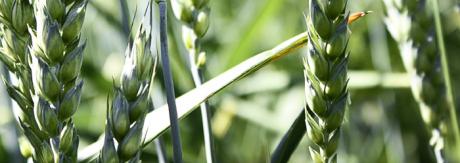
Op-Ed: Realism or eco-romance
Op-Ed:
It is so liberating reading the op-ed by Marie-Louise Thøgersen, 15 April in JP. The op-ed is about energy, environment and agricultural policy, and showcases how political proposals, decisions and attitudes are in direct conflict.
In October 2012, the EU Commission proposed an amendment to the Renewable Energy Directive, which states that the use of 1st generation biofuels should be reduced from 10 to 5 %, to make sure that the use of biofuels is not in conflict with food production.
Ecology vs. biofuels
The yields from an ecological cultivated wheat field are only half the size of the yields from a conventionally cultivated wheat field. So, if you believe that it is not responsible to use European grown wheat for the production of bioethanol – a production which occupies 1.4 mill. ha. in the EU – you ought to look at the 10 mill ha. of agricultural land occupied by ecological productions.
Increased agricultural yields through biorefining
Another paradox arises as you, politically, only take into account the land occupied by crops for biofuel production, and not the land the other products from the biorefining process releases for other food production.
Through a biorefining process of e.g. feed wheat, you do not only produce bioethanol, you also produce fibers for food and a valuable protein product, which can replace some of the 1.5 mill. soybean protein imported for the Danish husbandry every year. A soy production which, according to a new report commissioned by the Ministry of Food, costs rainforest, hurts the CO2 balance and destroys animal and plant life.
Political eco-confusion
The political favouring of bioethanol from agricultural residues, such as straw, is in direct conflict with the reorientation towards ecology. Ecological farmers do not have straw to sell for energy purposes – it has to be moulded into the soil as a manure reserve for next year’s crops. The politicians wish to appear with a global conscience for both the climate, energy and food production, while they neglect facts that ecological farming is bad for the climate as the yields are lower and causes more expensive food products.
Marie-Louise Thøgersen believes that it is ether a question of professional ignorance or populism. I believe that it is about both. Biorefining is about using the raw material in the most optimal way possible, but it has been made the villain in politicking, while ecology has become the political clear conscience.
Follow the developments within biorefining. hveiti regularly informs about our efforts to improve the environment.
Copyright © 2011 | Hveiti | Design Rabotnik




